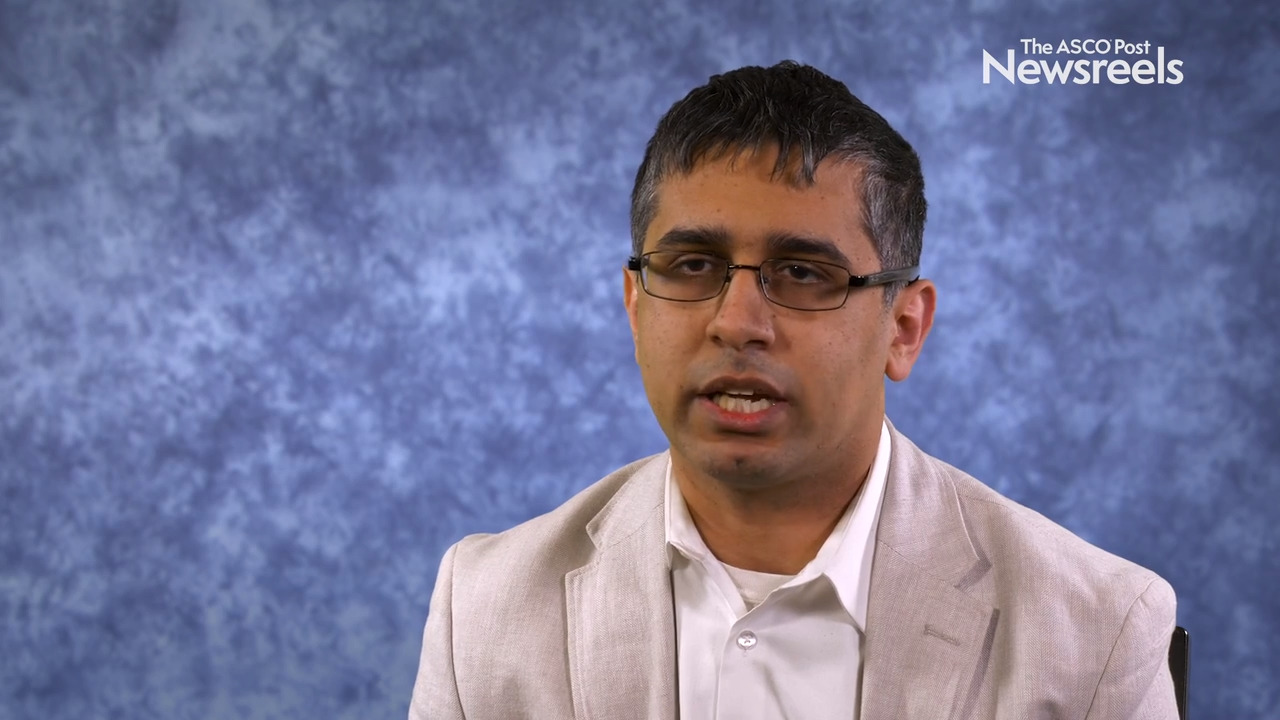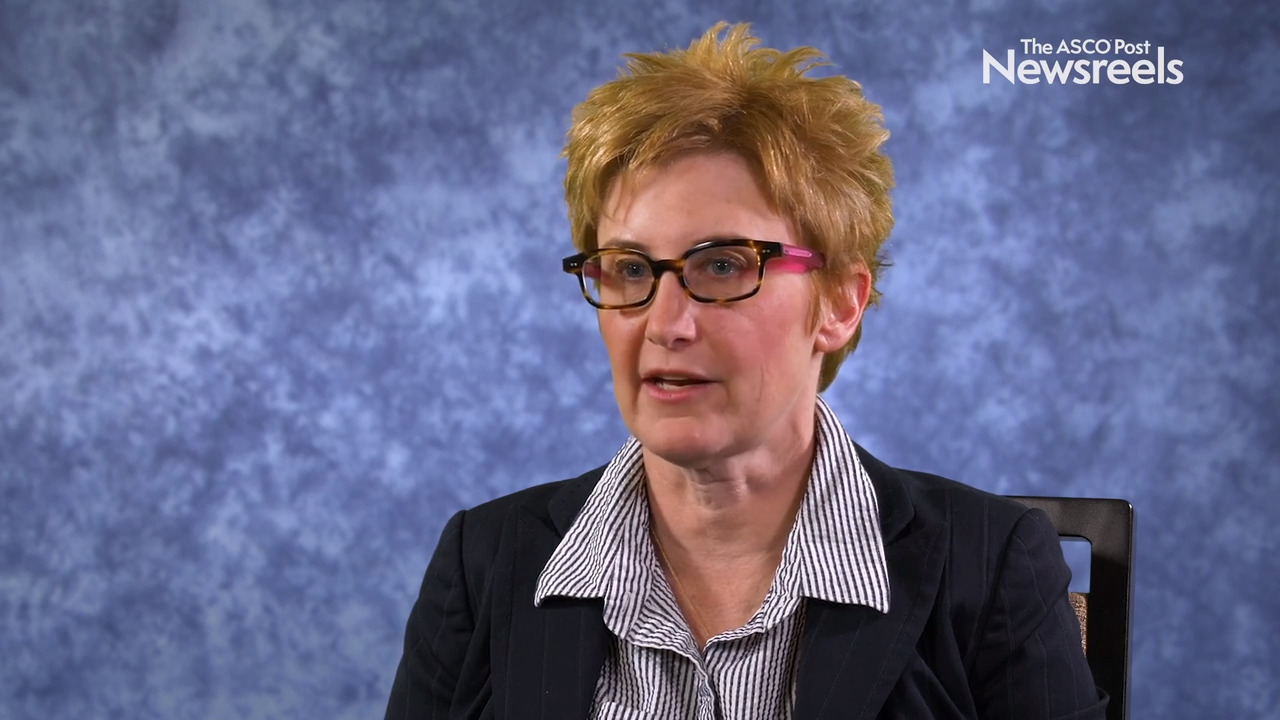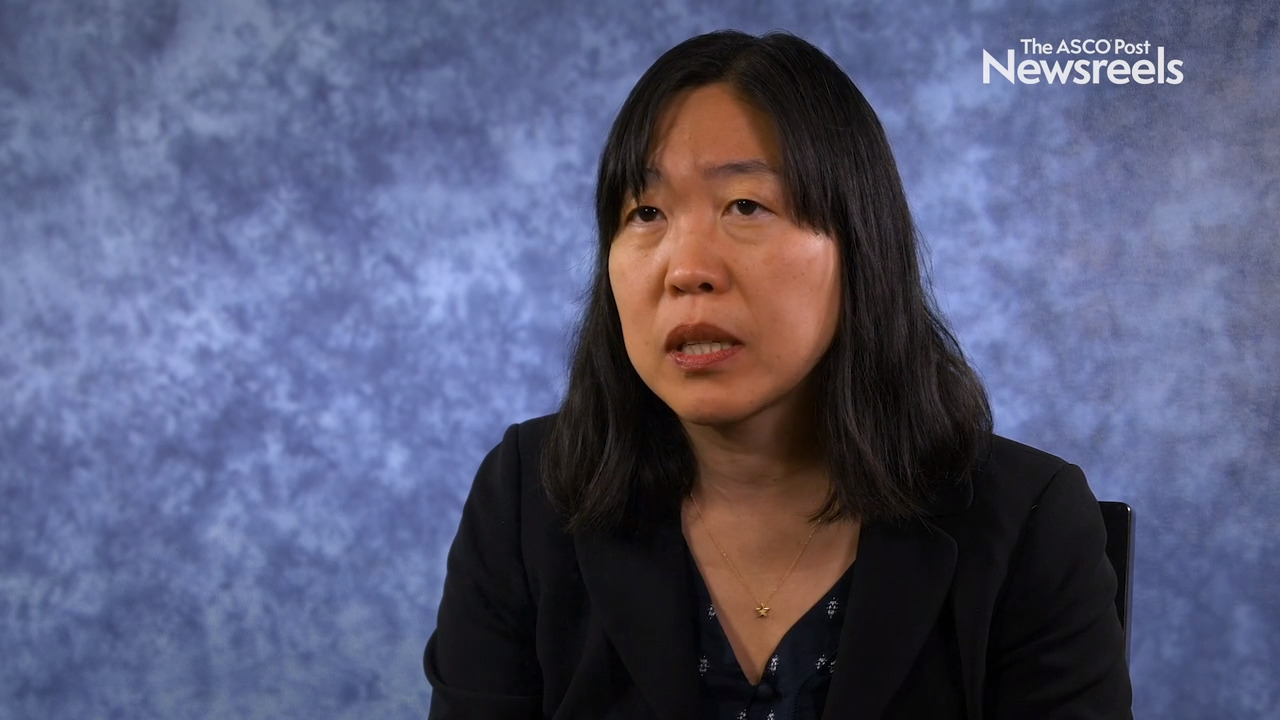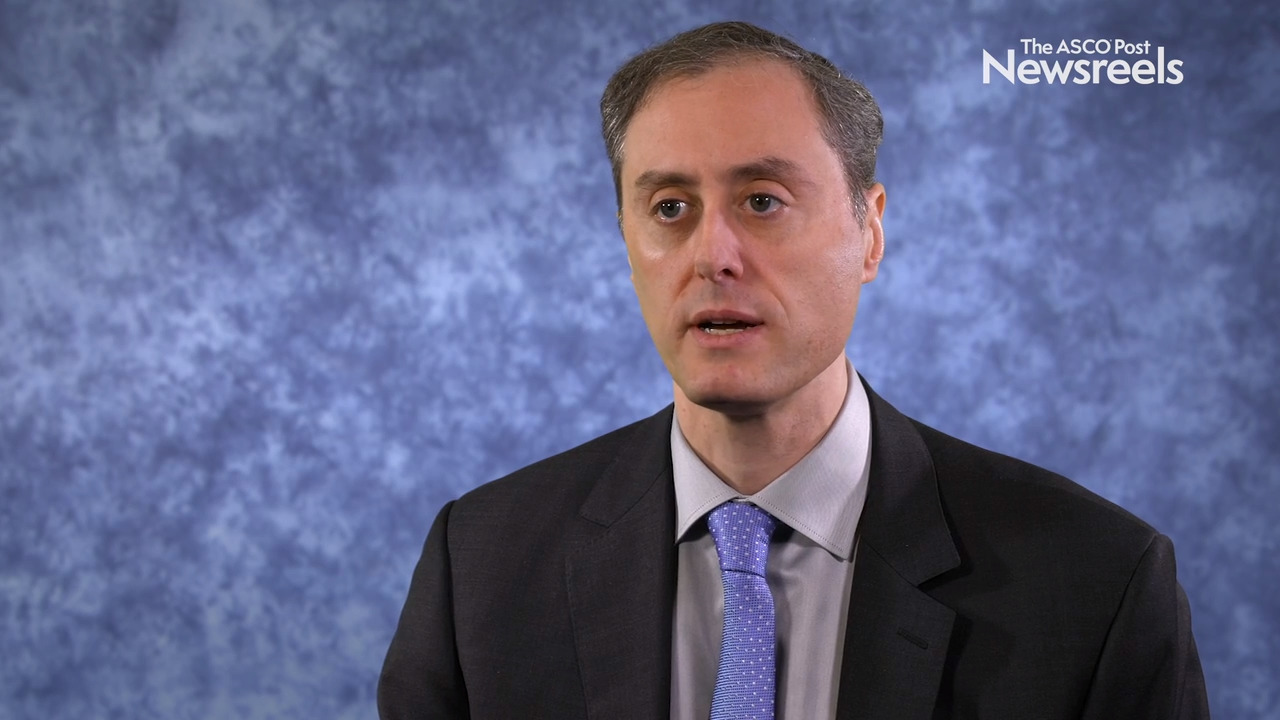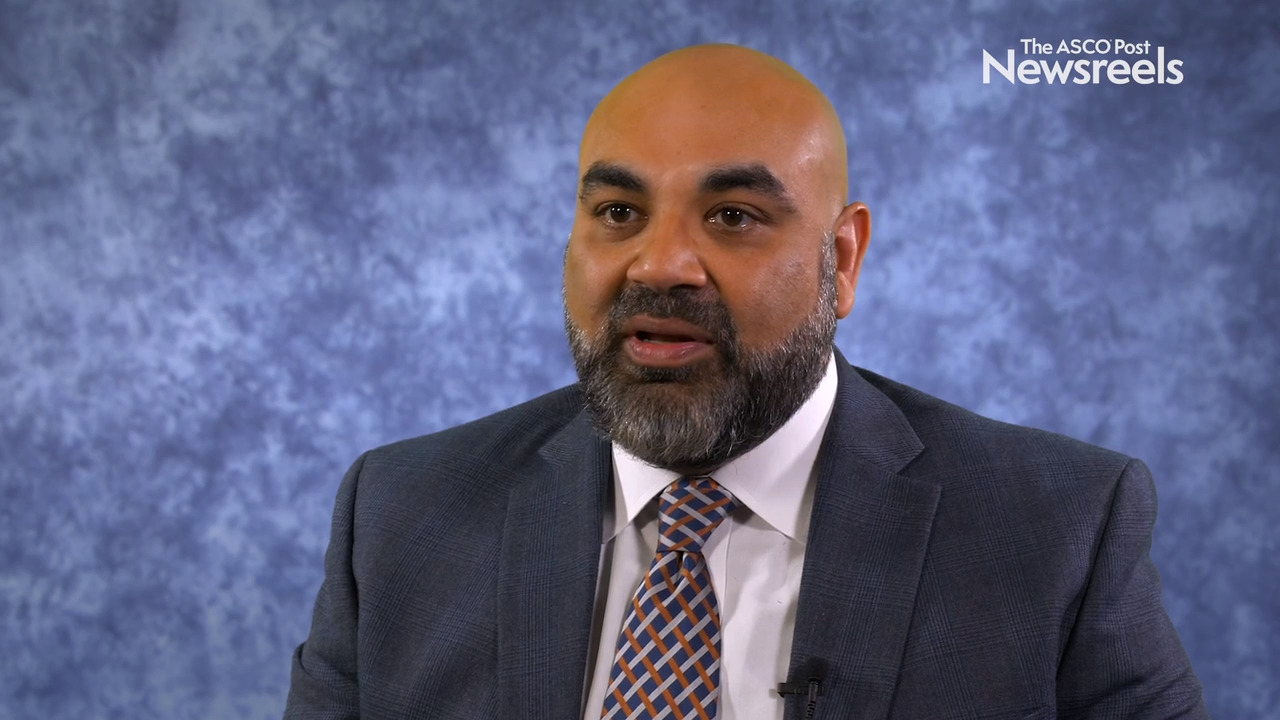David Adelstein, MD, on Guidelines for Treating HPV-Associated Oropharyngeal Squamous Cell Carcinoma
2020 Multidisciplinary Head and Neck Cancers Symposium
David Adelstein, MD, of the Cleveland Clinic, discusses the hypothesis that treatment can be de-intensified in patients with HPV-associated oropharyngeal cancer and a good prognosis.
The ASCO Post Staff
Nadeem Riaz, MD, of Memorial Sloan Kettering Cancer Center, discusses the biomarkers that have emerged for immunotherapy and their tumor microenvironments, from PD-L1 staining and the Combined Positive Score to next-generation genomic technologies.
The ASCO Post Staff
Jill Gilbert, MD, of Vanderbilt University Medical Center, discusses this ongoing area of investigation and which patients can safely undergo a de-intensification of treatment. Based on two randomized trials, cetuximab should not be substituted for cisplatin as a de-intensification strategy in HPV-positive oropharyngeal cancer.
The ASCO Post Staff
Sue Sun Yom, MD, PhD, of the University of California, San Francisco, talks about the variety of evolving ways to deintensify radiation therapy, the critical need to counsel patients on the risks and benefits, and the ethical importance of respecting patient preferences in choosing their cancer therapies.
The ASCO Post Staff
Jared Weiss, MD, of the University of North Carolina, Chapel Hill, discusses outcomes for patients with stage III or IV disease who are ineligible for the standard treatment of cisplatin plus radiotherapy. His data suggest that treatment with pembrolizumab/radiotherapy instead is tolerable, with improvements seen in progression-free and overall survival (Abstract LBA1).
The ASCO Post Staff
Gopal K. Bajaj, MD, MBA, of the Inova Schar Cancer Institute, discusses the results of a small study that showed prophylactic gabapentin can be safely and effectively used to significantly reduce pain and the use of opioids in patients undergoing radiotherapy or chemoradiotherapy for head and neck squamous cell carcinoma.
